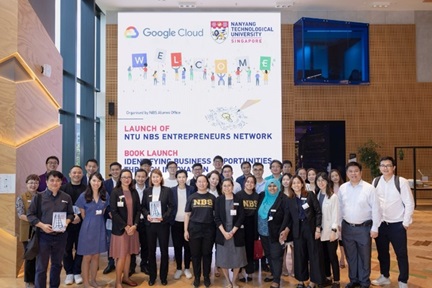What is stopping more Singaporeans from taking up tech jobs?
Tech jobs seem to be all the rage, so what is stopping more Singaporeans from taking them up?
Monetary Authority of Singapore managing director Ravi Menon said at a recent webinar that Singaporeans accounted for about 35 per cent of tech jobs, and 35 per cent of net tech jobs created in the past five years in banking and finance.
One challenge could be in having the right skills.
Talent development company JobTech looked at job posts for business analysts, data scientists and UI/UX (user interface/experience) roles in the infocomm technology (ICT) and banking and finance sectors and compared these with profiles of students and jobseekers - both local and foreign - to see how well their skills fit what employers wanted.
These sectors were tops in terms of total job demand last year, said JobTech data scientist Tan Jun Huang.
The firm found that in the ICT sector, from 2018 to last year, the gap in skills fit between foreigners and locals widened slightly, from 5 per cent to 7 per cent, with foreigners in the lead. In banking and finance, the gap in skills fit between foreigners and locals stayed constant at around 5 per cent.
Highlighting some specific skills in demand, Mr Tan noted that in ICT, locals still lack more in-depth data science expertise like deep learning.
In banking and finance, job requirements for business analysts have shifted from mastery of data visualisation software and having banking and financial services knowledge towards programming skills, where more foreigners are better skilled, he added.
Other reasons for the low proportion of Singaporeans in tech jobs could be the relatively higher cost of labour here and limited number of ICT graduates from local institutions, said Nanyang Technological University (NTU) associate professor of information technology Damien Joseph.
Mr Menon noted in the webinar that the number of unfilled tech jobs across the economy is an estimated 19,000 each year, but undergraduate enrolment for ICT across the six autonomous universities was just 2,800 last year.
Another 4,500 ICT students graduate from polytechnics and the Institute of Technical Education each year.
Many engineering and science graduates who could also fill technology jobs go on to non-tech jobs instead, added Mr Menon.
With efforts under way by the Government and private sector to help match Singaporeans to tech jobs and equip them with the right skills, how can individuals better prepare themselves for tech careers? Here are some tips:
Take modular courses or double degrees
Learners and jobseekers are increasingly expected to be multi-disciplinary, said Singapore University of Social Sciences senior lecturer in human resource management, Dr Millie Su Yun.
For instance, tech professionals who used to major in computer science have to apply those skills to finance, product development or marketing, she said.
One way for working adults to pick up skills in multiple domains is to take modular courses.
Prof Joseph noted that the short shelf life of technology skills implies the need to choose the right tech knowledge and skills to invest in and also to set aside spare capacity for continuous learning.
Micro-credentialing may be one way to hedge on competencies, such as through NTU's MiniMasters courses in business analytics and data science, he said.
Students could consider double degrees.
NTU has a double-degree programme in business and computing and a new double degree in accountancy and data science and artificial intelligence (AI).
The National University of Singapore also offers double-degree programmes in computer science or information systems, together with business administration (including accountancy).
Both mid-career switchers and students can look for on-the-job training opportunities, such as internships, work attachments and work-study programmes, to pick up industry-relevant skills quickly.
Source: The Straits Times, 16 May 2021




